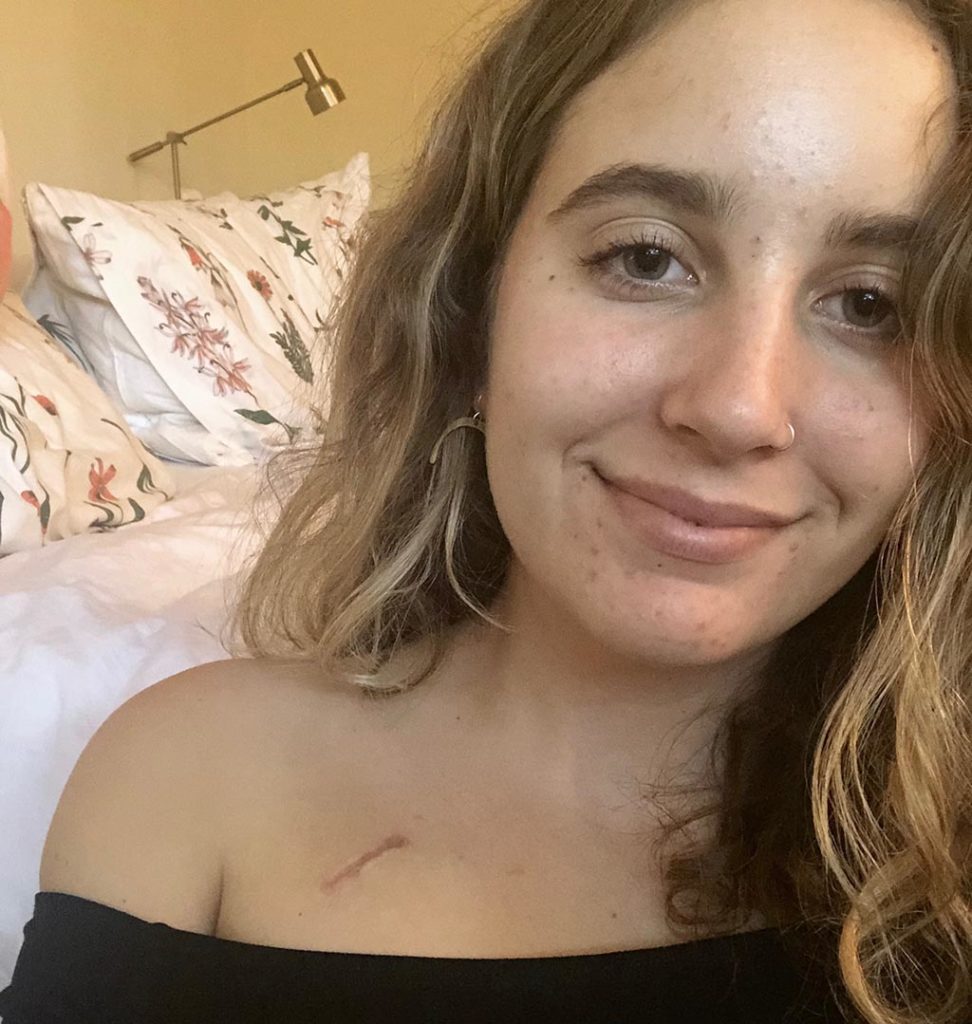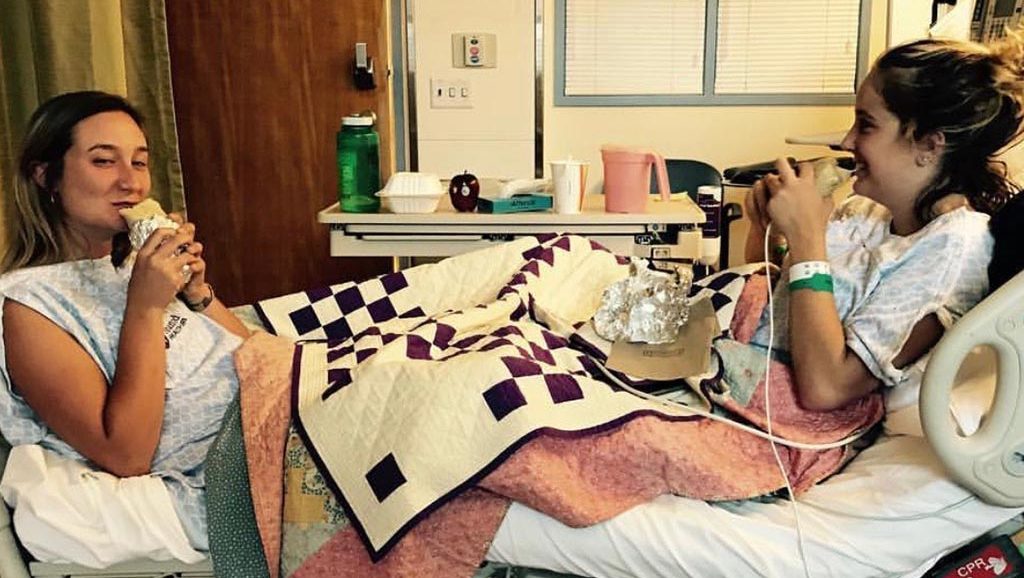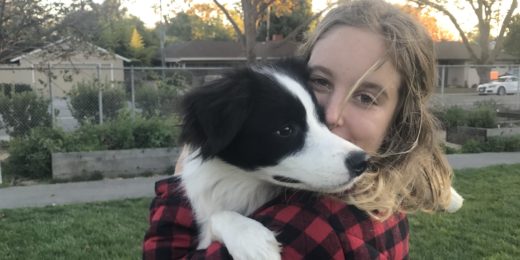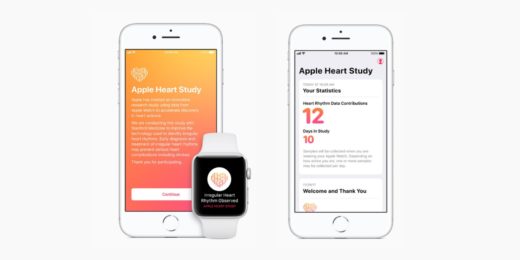The night before the surgery, I took a shower, covering myself in antibacterial liquid to reduce the risk of infection. I touched my upper left chest, knowing it would never feel the same once the pacemaker was inside.
I was nervous about getting a pacemaker, but also hopeful that it would help me not feel so tired all the time. I had been diagnosed at 19 with a condition that causes my heart to beat too slowly. What I didn't realize was that the exhaustion I constantly felt would be gone in a matter of weeks.
My immediate family came with me to Stanford Hospital. My mom, dad and sister stood by as I signed in to the catheter lab, surrounded by patients decades older than me. My family tried to put me at ease, cracking jokes and taking photos as nurses wrapped identification bands around my wrists.
They led me away, to a preparation room where they inserted IVs in both of my arms. As I waited for the surgery, I lay in bed with my arms straight, staring at the ceiling. My family came in two at a time, still trying to entertain me, now with photos and card games.
Eventually an anesthesiologist came in and described how the surgery would go. He said I wouldn't be receiving general anesthesia because I already had an exceptionally low heart rate. Instead, I would be given some local anesthesia and sedatives that would put me to sleep.
I had an eerie sensation that the sedatives weren't going to work well. I even started asking myself, "Should I do this?"
Mohan Viswanathan, MD, the lead surgeon and a Stanford professor of cardiovascular medicine, walked in and asked if I was ready. A nurse came in and checked my IV. Doctors asked me questions that I barely processed. They started moving things around to get me ready.
They gave me some medication to relax me. But it didn't relax me. Then, they rolled me into the operating room and gave me more medication. But I was still awake. While I stared at the blue sheet that blocked my view of my bare chest, I felt quick, sharp stabs of pain. They had started the procedure.
I couldn't stop crying. I don't know whether it was fear or a side effect of the medication. While tears dripped down my cheeks, my nurse, Roberto Borges, touched my head to show I wasn't alone. Bob was my rock. Whenever I looked up, hoping to find support, I saw Bob looking back at me, telling me how the surgery was going, reminding me that it would all be better soon.
I felt guilty for being awake, and I couldn't stop apologizing. The doctors told me that I should never be sorry. The surgery took twice as long as anticipated -- three hours -- mostly because it took extra time to calm me down. There was a benefit, though: My heart maintained a high rate, which, for me, meant it wasn't skipping beats during the surgery.
By the end, I felt defeated, both physically and mentally.

When my family came to see me in the recovery room, they looked at me with hope -- hope that I was safe, that it went smoothly and that all my heart issues were now happily resolved. They brought me a burrito. I devoured it. But because the surgery had run so late, they had to leave after only five minutes. I went to sleep.
The next morning, I went home. My shoulder felt like it was being crushed by a 40-pound weight.
One aspect of a pacemaker felt similar to getting braces: There was a foreign object in my body. Whenever I sat up, I felt the device shift the tissues and nerves in my chest, bringing that weight back to my shoulder. But every day, I got used to the feeling, and I recovered from the surgery.
About four days after the surgery, I felt a tap on my inner left breast. It was like a small spasm or a random sensation, a muscle adjustment or -- perhaps -- a heartbeat.
When I went into the doctor's office to be checked, I was afraid that tap meant there would be bad news; but the tech didn't seem concerned. He placed a round, plastic disc on my fresh wound and attached it to a computer. I felt my heart beat more quickly, then more slowly, as he adjusted the pacemaker. Then I felt the tapping again.
It was from my pacemaker.
A wave of relief washed over me. For once, it wasn't my heart doing something wrong.
The day my bandage was removed I was excited to show off my scar and to feel the pacemaker under my skin with my fingertips. I would look down at it and think about how it works: Small leads connected to my heart send electrical signals that cause blood to pump through my body, delivering oxygen and energy to every inch.
My dad suggested I name the pacemaker Nomi, short for metronome, those devices that help musicians stay on the beat. The name reflects the connection my dad and I have through our love of music.
I still feel the tap nearly every day, and it doesn't bother me. It's a small side effect for an overwhelmingly positive change to my life.
I can now stand up without feeling exhausted and lightheaded. I can work out without seeing stars, and do homework without needing to lie down. I can strengthen my muscles, gain endurance and trust that my heart will beat as it should. And I am full of energy, like other college students.
My mental health is completely different from the first time I stepped in the hospital. I have more confidence and consistent happiness. Through this experience, I now understand where my body falls short and when I should ask for help. Now I'm proud to say I had heart block.
When I touch my upper left chest, I feel a hard, rounded object under my skin. It reminds me of the mind-boggling, jaw-dropping, wonderful technology of a cardiac pacemaker -- Nomi, my cardiac pacemaker -- a tiny machine that keeps my already hard-working heart beating properly.
Read Part 1 about why I made the decision to get a pacemaker after being diagnosed with a condition that causes my heart to beat too slowly.
Bea White grew up in Palo Alto and attends Foothill College, where she is studying biochemistry.
Top photo of Bea White (right) with her sister, Isabel, (left) by Anna Erickson White. Middle photo courtesy of Bea White.






